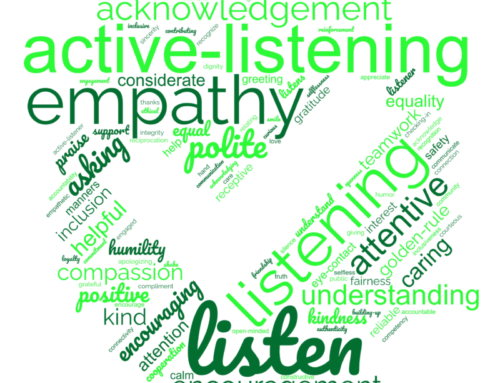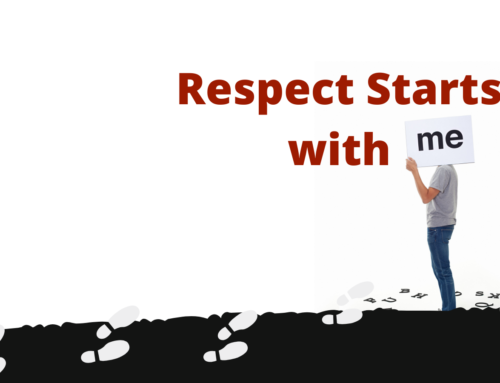Workplace Gossip is Dangerous and Destructive
Workplace gossip often hits the top of my top ten list for “disrespectful workplace behaviors” when I ask a class to tell me what disrespect looks like.
And that’s why I want to focus on it here.
The problem is that gossip can seem so harmless. That little chitchat at the water cooler about so and so. The debate over someone’s relationship with someone else. Is it chitchat or is it gossip? How can you tell the difference?
There is a very big difference, and it’s important to make the distinction because gossip that runs amok can be dangerous and destructive in the workplace.
Workplace Gossip or idle chit chat?
So how does one tell the difference between idle chatter or workplace gossip? While idle chitchat and other light conversation can be value-neutral, gossip is often negative, inflammatory, and embarrassing to the person being spoken of.
Here is a test; think of a recent conversation and consider the impact of what was said:
- Did it cast negative aspersions?
- Did it create rifts?
- Did it exult in the misfortune of others?
- Did it have a negative emotional charge?
- Did it serve to perpetuate conflict or negativity?
- Was it hurtful or damaging?
- Is it something you would say in front of the person being discussed?
Technically, any sharing of trivial or unsubstantiated information can be considered gossip. But you have to think of the sentiment behind it.
For example, if it were rumored that a co-worker is being promoted, and you discuss it with a co-worker, is that workplace gossip?
If the discussion is hurtful or damaging or negative, then yes, it is gossip. But if it’s value-neutral then it’s not. If the story is told with negativity and without goodwill, then it’s gossip.
Gossip hurts
Workplace gossip can have many adverse side effects on an organization. It can increase conflict and decrease morale (it certainly did with the group I was with at the workshop).
It can also result in strained relationships.
Consider this: gossip breaks down the trust level within the group, resulting in employees second-guessing each other and ultimately running to the supervisor to clarify the directions or instructions, or to settle any differences that arise.
Gossip is the death of teamwork, creating rifts in the group, leading to cliques, and employees refusing to work with certain people.
Additionally, workplace gossip can be the birth of bullying and harassment. When cliques form, nasty behavior often comes with it. People can feel excluded and just like that, we’re back in high school where Queen and King Bees rule and respect flies out the door.
But luckily, there are ways you can stop gossip in its tracks to avoid such a toxic environment.
Breaking the gossip cycle
Let’s say you aren’t a gossiper, you simply listen to your coworkers so as not be rude. You’ve been taught to be a team-player, right?
But here’s the thing that most people don’t realize—as a listener, you are a co-narrator to the gossip. In other words, just the act of listening supports and promotes gossiping.
The more you listen, the more you encourage it.
If you don’t listen, the gossip has nowhere to go.
Here’s how to get off the gossip train
- Be busy. Gossipmongers want attention. If you’re preoccupied with your work, you can’t be available to listen to their latest story.
- Don’t participate. Walk away from the story. Don’t give visual clues that you are interested in listening. If someone passes a juicy story on to you, don’t pass it any further. Take personal responsibility to act with integrity.
- Turn it around by saying something positive. It isn’t nearly as much fun to spread negative news if it’s spoiled by a complimentary phrase about the person being attacked.
- Avoid the gossiper. If you notice one person who consistently makes trouble, take the necessary actions to have as little interaction with that person as possible.
- Choose your friends wisely at work. You spend a good deal of time at work so it’s natural for friendships to develop. Share information sparingly until you are sure that you have built up a level of trust. Also, close association with gossipers will give the perception that you are a gossiper as well.
- Be direct. If you confront the gossiper and confidently tell him or her that such behavior is making it uncomfortable for you and other coworkers, it’s likely to stop.
- Don’t be afraid to go to a superior. Gossiping wastes a lot of company time and hurts morale. A company interested in a healthy work environment will value the opportunity to correct this type of situation and avoid possible bullying and harassment in the future.
What will I Contribute?
Perhaps this discussion of workplace gossip has you thinking of all the times you have inadvertently contributed to the gossip by just being a casual bystander or not stopping it in its tracks.
No one is perfect of course!
But I hope that you now feel more confident dealing with the gossipers in your workplace by utilizing these tools.
After all, when we look to create a respectful workplace, it’s not simply about not doing the negative things, but about making sure we do the positive things as well.






